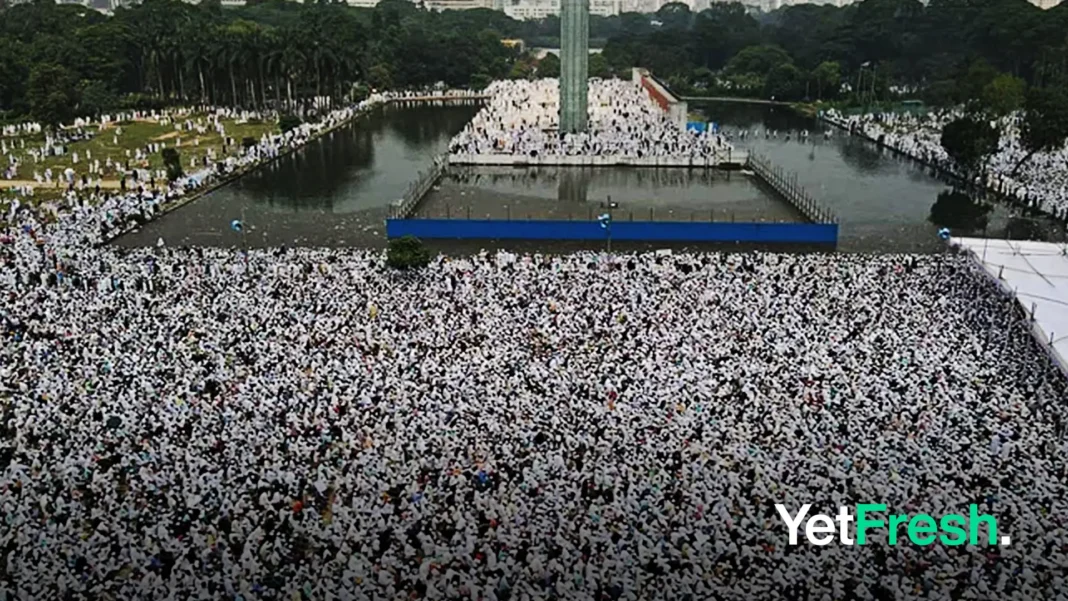TL;DR
- A massive Islamic rally at Suhrawardy Udyan on November 5 caused severe traffic jams across Dhaka, affecting nearby areas like Shahbagh and Dhaka University.
- The rally, organized by Ulama Mashayekh Bangladesh, aimed to address issues within the Islamic community, including a demand to limit the Bishwa Ijtema to one phase.
- Commuters and students expressed frustration over the disruptions, with many stuck in hours-long traffic gridlock.
- Maulana Obaidullah Farooq, the event organizer, apologized for the inconvenience and thanked law enforcement for their cooperation.
On Tuesday, November 5, 2024, a large-scale Islamic rally organized by Ulama Mashayekh Bangladesh at Dhaka’s historic Suhrawardy Udyan brought parts of the capital to a standstill, causing significant traffic disruptions across the city. The rally, which drew thousands of participants from across the country, began at 9:00 AM and continued until around 1:00 PM. The event aimed to address key issues within the Islamic community, including the ongoing debate surrounding the Tablighi Jamaat.
The rally saw Islamic leaders from various madrasahs and religious institutions gather to present a nine-point demand, which included calls to limit the annual Bishwa Ijtema to a single phase and to prevent Maulana Saad Al Kandhalvi’s followers from influencing key Islamic sites like Kakrail Mosque. The Bishwa Ijtema, one of the largest Muslim gatherings in the world, has been held in two phases since 2011, but the rally organizers demanded a return to a single-phase event.
The influx of attendees—many arriving by long-route buses—led to severe traffic congestion in areas surrounding Suhrawardy Udyan, including Shahbagh, Dhaka University, Matsya Bhaban, and other nearby locations. Commuters faced hours-long delays as major roads became gridlocked. “This is just a nightmare,” said Tamim, a frustrated office-goer stuck in traffic near Khamarbari. “Who will pay for our loss?” he added.
The disruption extended beyond regular commuters. Dhaka University students expressed frustration as crowds overwhelmed campus areas like TSC intersection and Doel Chattar. Many voiced their concerns about the recurring impact of large public gatherings on daily life in the capital. Abdur Rahman, another commuter caught in the gridlock near Farmgate, remarked that “this happens every time someone holds a rally at Suhrawardy Udyan or blocks the Shahbagh intersection.”
In response to the public outcry over the disruptions caused by the event, Maulana Obaidullah Farooq, convenor of the rally’s organizing committee, issued an apology on Wednesday. In his statement, he acknowledged that “the rally turned into a sea of people beyond our expectations,” and expressed regret for the inconvenience caused to residents and commuters in surrounding areas.
Despite the logistical challenges posed by such a large gathering, Maulana Farooq thanked law enforcement authorities for their cooperation in ensuring that the event proceeded without major incidents. He emphasized that without their support, it would have been impossible to manage such a massive turnout.
The rally not only highlighted divisions within Bangladesh’s Islamic community but also underscored ongoing concerns about public safety and urban mobility when large events are held in central locations like Suhrawardy Udyan. While organizers have apologized for the disruptions caused on this occasion, questions remain about how future events will be managed to minimize their impact on Dhaka’s already congested roads.




